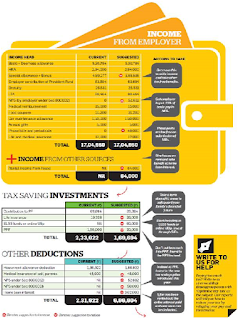Accounting Outsource to India
In general, outsourcing
is a trend that has been on the rise due to several obvious advantages. The
market place is a high-pressure environment. With competitors constantly
cutting into your profit margins and market share, the only area that you can
try and out do them is by being more operationally efficient. For the best
result to be achieved, resources need to be collaborated and optimized.
Therefore, the CFOs of many companies have deemed it practical and smart to
entrust their accounting services to third party firms who specialize in these
services and understand regulatory and compliance requirements for legal and
taxation purposes.
With India emerging as a much sought-after outsourcing
destination and meeting all global benchmarks, any companies worldwide,
especially in the United States have outsourced their accounting services
here. Many successful companies have popped up across the country in response
to this rising demand. They have carved a special niche for themselves and have
been successfully helping American companies streamline their operational
models and gain better control over their data and analytics. Account Outsourcing companies in India have successfully helped
their clients align their long-term goals with their everyday operations.
The outsourcing
companies are comprised of a network of professionals dedicated to providing
competent accounting services that include the standardization of certain
accounting practices including recurrent transactions which makes the overall
financial processing much simpler and clear-cut. In the long run it is highly
cost-effective. Companies can leverage the collective expertise of this group
of specialists and tap into their extensive industry knowledge. They can shift
their focus entirely to the core of the business and its long-term goals as
opposed to being engaged in the everyday drudgery of bookkeeping andaccounting service.
These organisations
being highly customer-centric understand the specific requirements of their
client and come up with the most effective solutions which usually tends to be
beyond the competency of the company to do it on its own. Even some CPAs today
outsource accounting services to overseas firms to save time required to train
and supervise accountants and labor costs to hire and pay them. The fundamental
logic behind outsourcing is increasing productivity and efficiency.
Also, many small or
medium sized firms may not be able to procure in-house support for their
financial services. Outsourcing with the US may not be viable either. For such
companies outsourcing in India becomes an attractive option where they can
acquire the services of a thoroughly professional organisation at very
affordable prices and successfully run their business without unnecessary
hassles. Even some larger firms may consider this to further reduce their
operational cost.
There is also the
added advantage of scalability and agility. There are times when your company
will need to expand and consolidate; others where you may need to cut back
either due to economic restraints or to rapidly pursue a short-term goal. This
will be enabled due to the customized professional support that an outsourcing
firm of experts can provide




